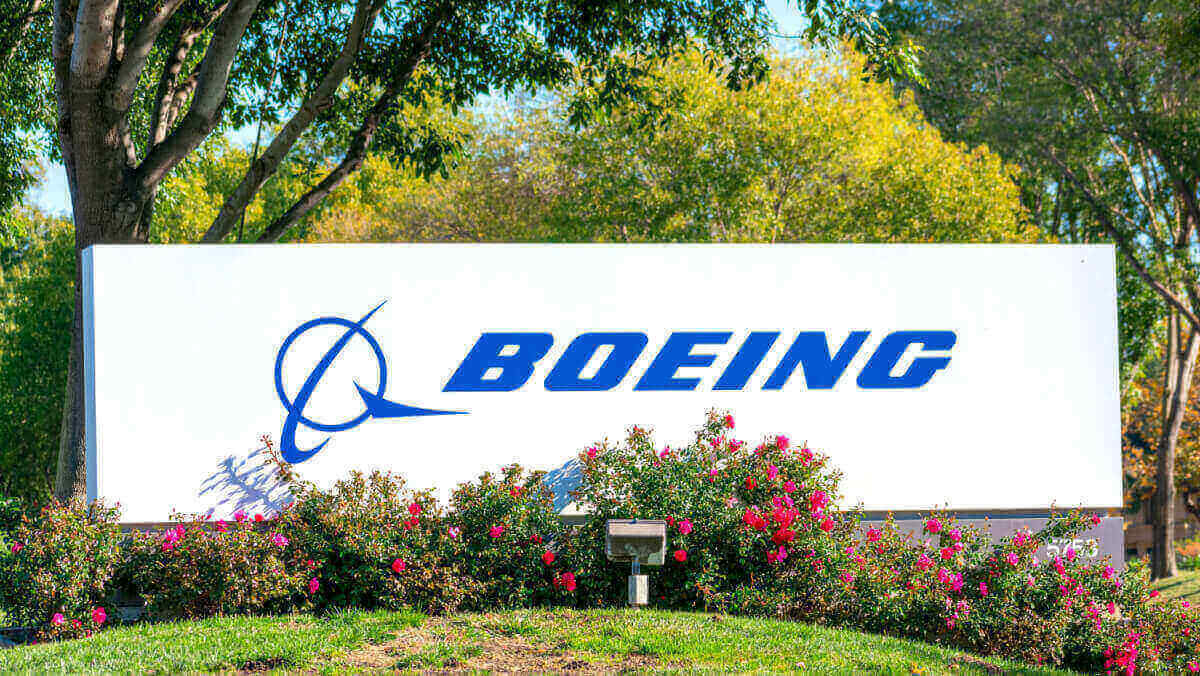Thursday Feb 1 2024 13:36

6 min

Boeing shares closed up 5.3% on Wednesday as the aerospace giant reported better-than-expected fourth-quarter earnings.
The earnings announcement, however, was just a portion of the broader narrative. Key discussion points on the Boeing earnings call included the status of the 737 MAX jet, production standards, increased regulatory scrutiny, the trajectory of commercial aerospace's recovery, approvals for new aircraft, and the profitability of Boeing's defense segment.
In Q4 2023, Boeing disclosed a loss of 47 cents per share on $22 billion in revenue, with free cash flow (FCF) reaching $3 billion. These figures beat Wall Street's expectations, which had forecasted a 76-cent loss per share on $21.1 billion in revenue and $2.1 billion in free cash flow, based on Bloomberg data.
This marked a significant improvement from a year ago, when Boeing reported a loss of $1.75 per share on roughly $20 billion in revenue.
The Boeing earnings report was a welcome change from the turmoil the firm saw in January, with the CEOs of United Airlines and Alaska Airlines CEO recently taking turns to blast the aerospace firm in public statements, demanding “real action” to restore its previous reputation for quality.
The Boeing share price closed up 5.29% at $211.04 up on Wednesday, compared to the benchmark S&P 500 index and Nasdaq Composite, which were down by approximately 1.6% and 2.23%, respectively. Boeing stock, which trades on the NYSE under the ticker BA, was up 1.6% in premarket on Thursday.
Сalculate your hypothetical P/L (aggregated cost and charges) if you had opened a trade today.
Market

Instrument


Account Type
Direction
Quantity
Amount must be equal or higher than
Amount should be less than
Amount should be a multiple of the minimum lots increment
USD
EUR
GBP
CAD
AUD
CHF
ZAR
MXN
JPY
Value
Commission
Spread
Leverage
Conversion Fee
Required Margin
Overnight Swaps
Past performance is not a reliable indicator of future results.
All positions on instruments denominated in a currency that is different from your account currency, will be subject to a conversion fee at the position exit as well.
Since a malfunction with an emergency door plug on a MAX 9 jet operated by Alaska Airlines on January 5th, Boeing's stock had seen a roughly 20% decrease leading up to Wednesday's trading session. The S&P 500 and Nasdaq Composite saw gains of about 4% and 6% respectively during the same period.
“We must simply be better,” said Boeing CEO Dave Calhoun on the conference call. “Our customers deserve better.”
In response to the incident, Calhoun outlined measures Boeing has implemented to enhance quality, such as increasing oversight on 737 production, engaging a third-party quality consultant, and pausing production for a comprehensive quality review with staff.
Boeing's commercial airplane segment reported an operating profit of $41 million — a modest figure but a positive shift from the billions lost due to the Covid-19 pandemic and the global grounding of the MAX fleet from March 2019 until November 2020.
“Back in black,” wrote Vertical Research Partners analyst Rob Stallard in a Wednesday note shared with Barron’s. Boeing’s overall operating profit of $283 million was “significantly ahead of our estimate”, he added. Stallard has maintained a Hold rating on Boeing stock with a $245 price target.
In the fourth quarter, Boeing delivered 157 aircraft, including 107 MAX jets, an increase from the 152 jets delivered in the same quarter the previous year, which also included 107 MAX planes. The total deliveries for the year amounted to 528 aircraft, with 387 being MAX jets, up from 480 total deliveries, including 374 MAX jets, in 2022.
Wall Street anticipates around 530 jet deliveries for 2024, although Boeing has not provided financial guidance for the year, stepping away from its usual practice of offering forecasts for free cash flow and jet deliveries.
“Suspending guidance makes sense given recent MAX troubles. Increased regulatory oversight in the aftermath of the incident will impact production rates and the approvals of two other versions of the MAX jet—the shorter MAX 7 and the longer MAX 10,” wrote Barron’s reporter Al Root.

The Federal Aviation Administration (FAA) has said it will not authorize an increase in MAX production until it’s satisfied with Boeing's manufacturing and quality assurance processes. Boeing aims to boost MAX production from about 38 units per month to over 50 in the coming years.
Calhoun indicated during the earnings call that the company could not yet say when production rates might increase.
Boeing is currently manufacturing 38 MAX jets per month, a rate Deutsche Bank analyst Scott Deuschle described as "better than some had feared" in a note on Wednesday, maintaining a Buy rating on Boeing stock with a $295 price target.
For 2024, the market expects Boeing to achieve approximately $5.8 billion in FCF, with the company blowing by analyst expectations in 2023 by posting FCF of $4.4 billion — about $900 million higher than anticipated.
Ahead of the report, Boeing's defense segment had been unprofitable in three of the previous four quarters, with fixed-price contracts and rising inflation affecting the profitability of defense contractors. Investors are keen to see evidence of stability in this area, although the defense segment reported a $101 million loss in the fourth quarter.
The options market had predicted a roughly 4% movement in the stock price, up or down, post-earnings. Historically, shares have fluctuated by an average of about 3% following the last four quarterly reports, with three gains and one decline.
When considering shares and indices for trading and price predictions, remember that trading CFDs involves a significant degree of risk and could result in capital loss.
Past performance is not indicative of any future results. This information is provided for informative purposes only and should not be construed to be investment advice.
Asset List
View Full ListLatest
View all
Thursday, 3 April 2025

5 min

Wednesday, 2 April 2025

5 min

Wednesday, 2 April 2025

4 min


